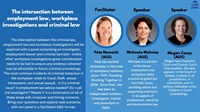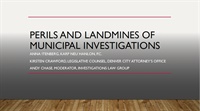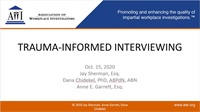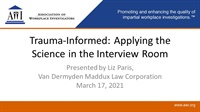Promoting and enhancing the quality of impartial workplace investigations.™





Credit available - Click Here for more information



Credit available - Click Here for more information

Credit available - Click Here for more information

Please wait ...